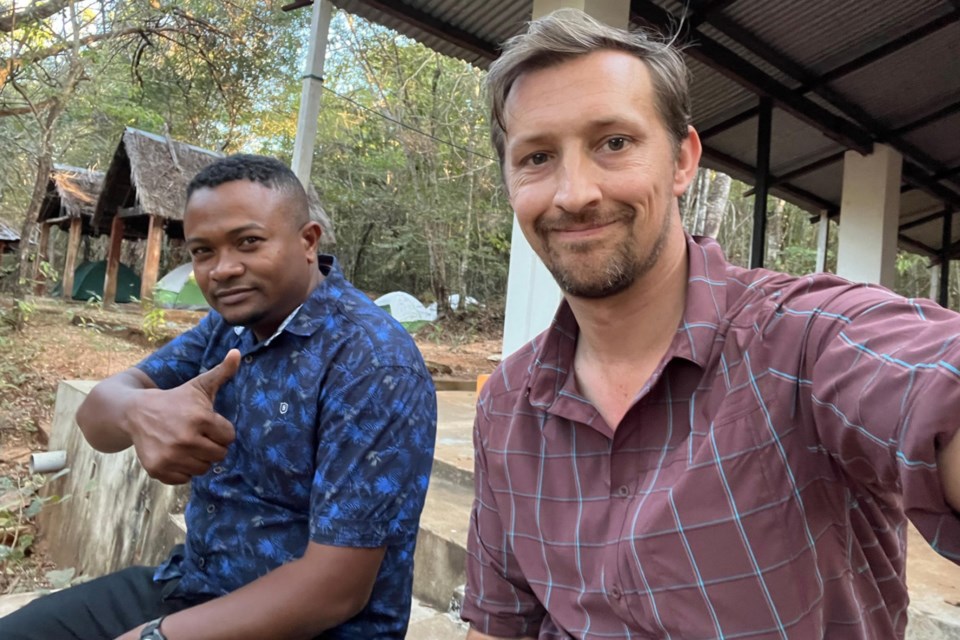When Travis Steffens was eight years old, he wanted to be a monkey.
“That turned out to be way harder than I thought,” the University of Guelph professor said. So instead, he settled for studying them.
Lemurs in particular captured his attention “because they’re just so weird,” but also because they’re considered endangered due to forest fragmentation.
While working on his PhD in Madagascar, he and his colleague Mamy Razafitsalama wondered if they could combine lemur conservation and research with the needs of the people who lived with them in the community. It was out of this idea that Planet Madagascar was born five years later.
The Guelph and Madagascar-based charity is focused on conservation, education and community development, building sustainable forest communities in northwestern Madagascar’s Ankarafantsika National Park, which is threatened by fires, logging, construction, slash-and-burn agriculture and domestic grazing.
The park is also home to eight lemur species, five of which are threatened with extinction; all of them live within a fire management zone.
Planet Madagascar has had a significant impact on the community since launching in 2015, hiring dozens of project staff and more than 100 temporary employees, planting 150,000 trees, and protecting 8,000 hectares of forest in Ankarafantsika from fire, grazing and extraction incidents through community patrols.
They also spend time raising local awareness about the impact of fires on lemurs, forests and people through educational programs and radio broadcasts, for example.
The forests in Ankarafantsika, the area they’re focused on, have all been broken up into small chunks, largely because of fires, he said.
As such, they have a fire program focused on fire prevention and awareness, hiring local residents from three core communities who monitor fires and cut ‘firebreaks’ – a gap in vegetation that acts as a barrier to slow or stop uncontrolled fires.
“The fires are usually set by people who are trying to graze cattle, and so they'll burn the grass and that promotes new growth. And sometimes inadvertently, they burned down forests adjacent to these grassy areas,” he said.
If that happens enough, the cattle that graze the area compact the soil, leading to erosion during the rainy season.
“All these things make it difficult for the forest to recover or return to the area,” he said, which is why fire management is an important method to prevent further lemur habitat loss.
It was for this community-based fire program that Razafitsalama, who is now Planet Madagascar’s in-country director, was recently awarded a Whitley Award – essentially the Oscars of the conservation world.
The Princess Royal presented UK-based Whitley Fund for Nature award, a £40,000 prize, to Razafitsalama and five other winners. The funding is expected to help them accelerate the fire program. Sir David Attenborough also narrated a short film with Razafitsalama discussing Planet Madagascar’s work.
“It’s considered a pretty important award for conservationists globally,” Steffens said. “It really highlights the local conservationists that are doing great work.
Such a prestigious award, and with Attenborough’s name attached, he hopes will spur more funding and interest in the work being done in Madagascar.
“We're hoping that this will jumpstart some more interest in protecting biodiversity in Madagascar,” he said.
